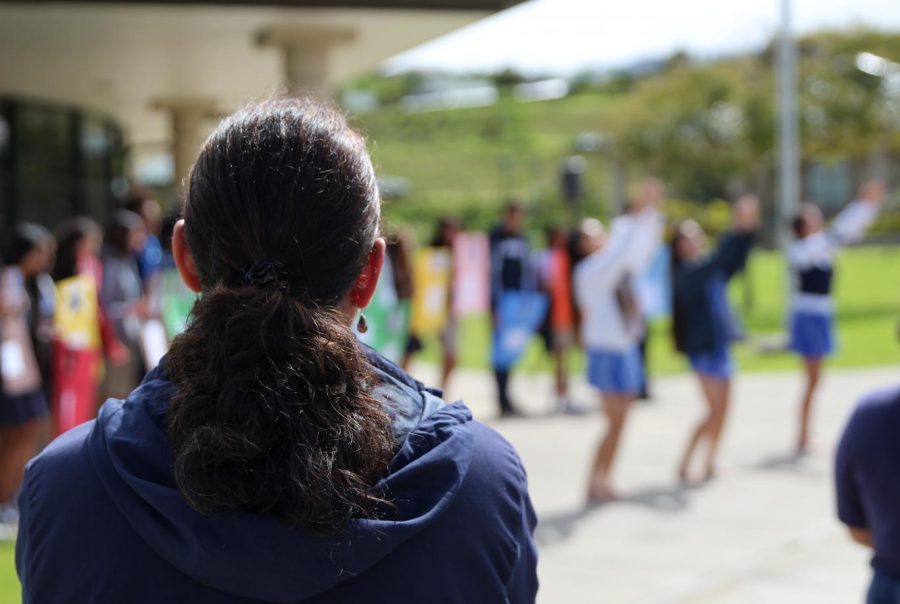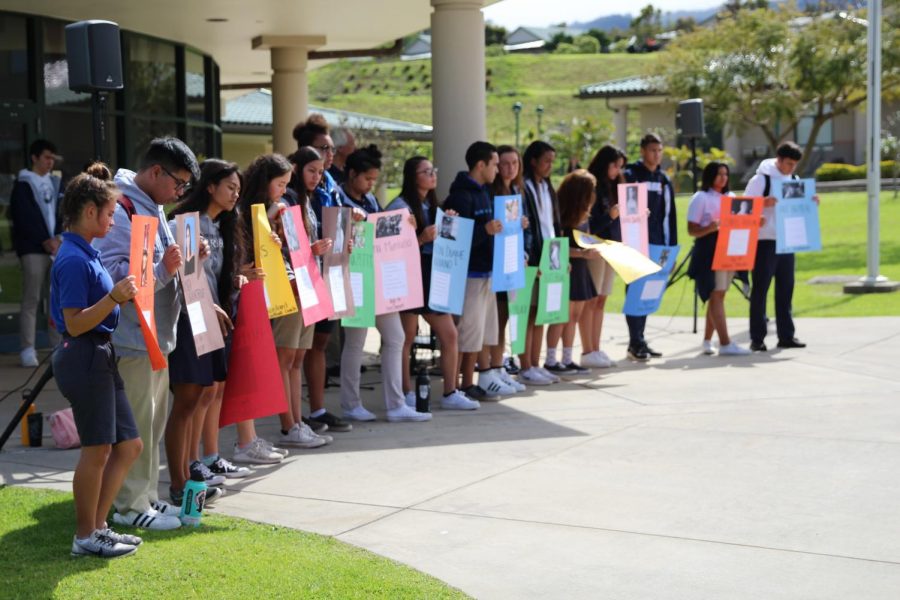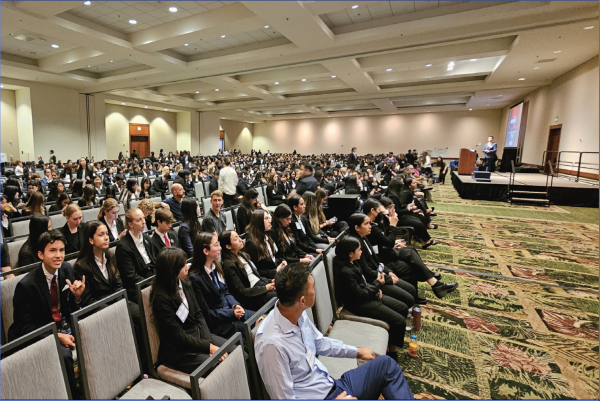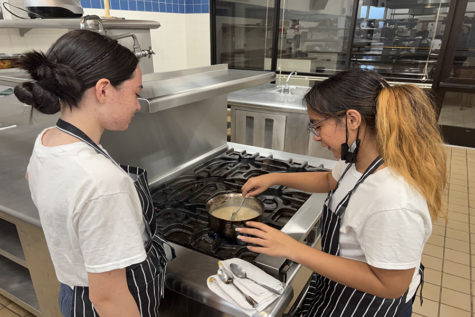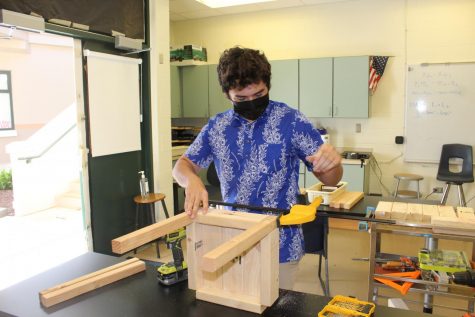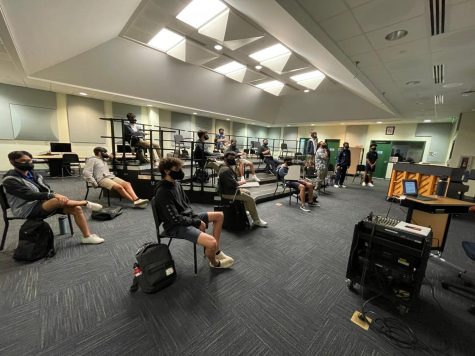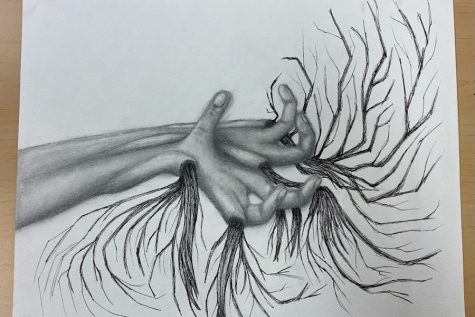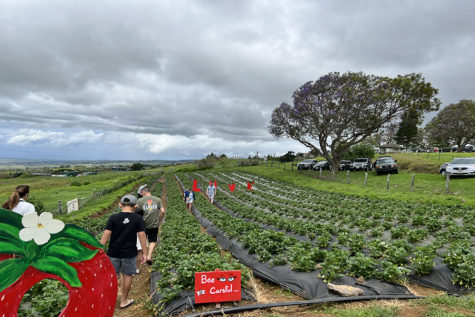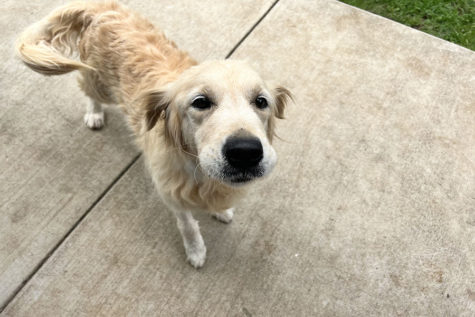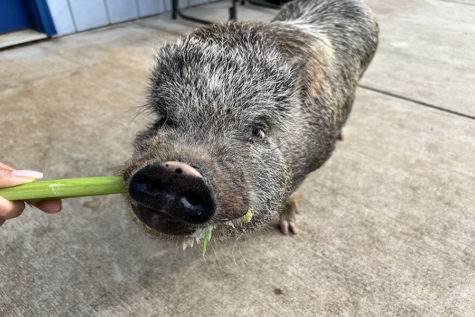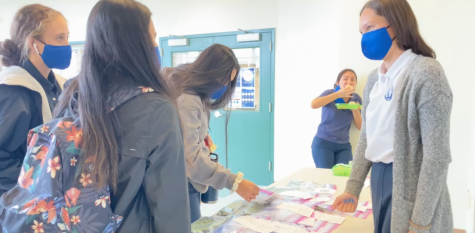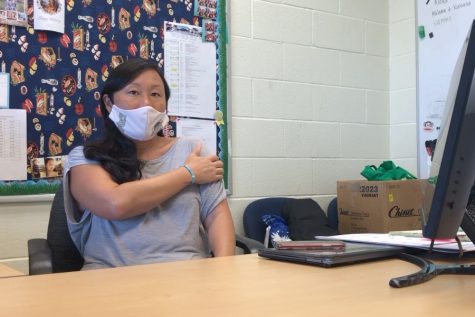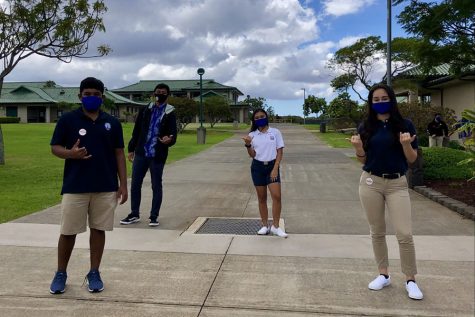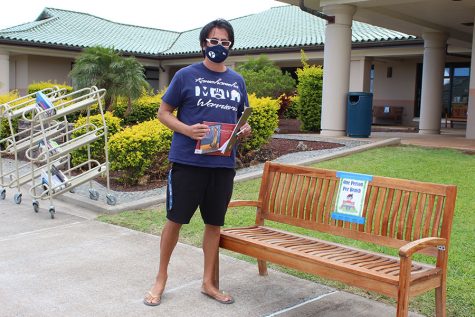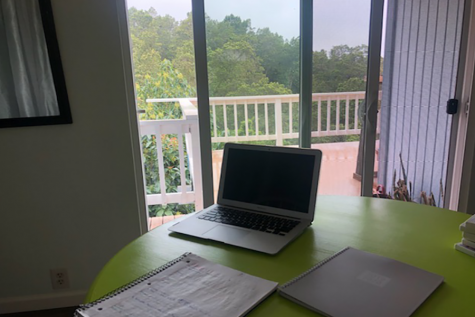Haumāna rise up, walk out against gun violence
Photo by Aaron Veincent
Kumu Kalei ʻAʻarona-Lorenzo watches as haumāna give their aloha through hula to the victims of the Marjory Stoneman Douglas High School shooting. It was one aspect of a 17-minute memorial, part of the National School Walkout, March 14.
“Bang!” bounced off the walls and rolled throughout the halls. The noise blasted under classroom doors, shaking windows, shaking students, shaking the entire school. In bare silence, a piercing screech soon followed. In those moments, they realized that the bang was a gunshot.
On Feb. 14, panic filled the air, and blood spilled across the floors. Almost 3,000 students of Florida’s Marjory Stoneman Douglas High School woke up that morning believing it would be like any other day; however, after arriving at school, it was anything but that.
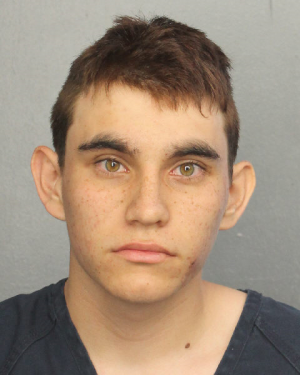
Nikolas Cruz faces 17 counts of murder with prosecutors seeking the death penalty.
It was somebody’s son, it was somebody’s neighbor, it was Nikolaz Cruz. At the age of nineteen, Cruz was a former MSDHS student who had been expelled for “disciplinary reasons,” authorities said.
Quiet and to himself, Cruz never had many friends, instead he had guns. He was known for sneaking them on campus while he was attending Stoneman Douglas, and because of this, many students were not surprised to hear that he was the school shooter.
Cruz has 34 charges against him, 17 of them for the murders at the school.
Three teacher and fourteen student lives were taken that day by Cruz’s AR-15 assault rifle, and this instance wasn’t the first time that news involving an automatic rifle had reached the front pages of newspapers nationwide.
Since Jan. 1, 2018, 18 school shootings have struck the United States, many of them involving automatic rifles, and the carnage from these types of attacks goes back further.
One crisis hit close to home for alumnus Taylor Ching [’17], who experienced the fallout of the Las Vegas Strip shooting that took place only 5 months ago. Although he wasn’t one of the concert-goers at the Route 91 Harvest music festival, which came under fire from Nevada resident Stephen Paddock, Ching was in the area.
“I was scared because people were seeking shelter, and one of [the places for shelter] was the Thomas and Mack Center on campus,” he said.
Ching attends the University of Nevada, Las Vegas, and is the older brother to freshman Ke’ala Ching.
Although Ching was not on the Strip the night of the attack, he said the incident had an effect on everyone.
“People were running and being bussed over,” he said. “I got an e-mail that advised everyone to stay in their dorms.”
The next day, news outlets reported that one of the 58 dead was a student at UNLV, Quinton Robbins (age 20).
“The next day the main walkways were empty, and classrooms were only about a third full,” Ching said.
As with MSDHS, the Las Vegas shooting was mourned for weeks with a focus on the role of automatic rifles.
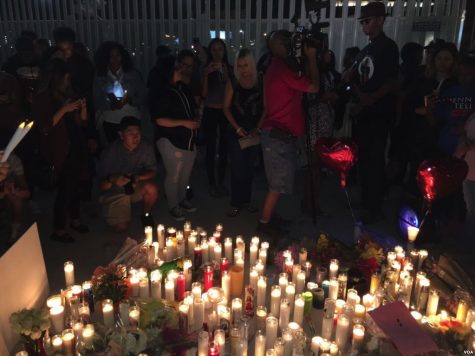
Senior Jordan Kama, a gun enthusiast (he is 18), said that “federally, the age to buy long guns, such as rifles and shotguns, is 18…handguns is 21.”
Almost every state across America, including Florida, has the legal age to buy long guns set at 18. Since Florida shooter Cruz is 19 years old, his obtaining of the weapon was legal.
“Part of the reason why [the AR-15] is one of the number one choices in school shootings is because it’s a convenient weapon,” Kama said, “They are easier to conceal, making [the rifles] more of a hidden threat.”
Many citizens across the nation believe the process to acquire firearms is too simple and should be subject to more control, thus the rise in gun control demonstrations in the wake of the Stoneman Douglas shooting.
Many who see gun control as going against the rights given in the Second Amendment, say that the gun itself and its sale and possession is not the problem.
“I think that, overall, the issue of gun control comes down to mental health issues, and the more prevalent issue of not addressing [those] core issues,” senior John Williamson said. His family is a part of the National Rifle Association.
One component of gun control campaigns is a focus on mental illness. Many believe that the solution to gun violence is having people who want to buy guns checked by a doctor for mental illness before purchasing a weapon. They point out the success of Japan’s gun application process.
Japan is one of the strictest countries when it comes gun laws. In order to acquire a gun, residents must go through a four-month process that includes classes, a mental illness evaluation, and interviews with the applicant’s family, friends, and co-workers.
The rigorous process for buying a gun kept their country’s gun death toll at 6 in 2014, while the U.S. had over 33,000.
“I think something in the form of a letter of recommendation system would probably be the best idea,” Williamson said. “Getting a doctor to okay you to buy a gun, or someone qualified to assess your mental fitness.”
Like Williamson, many teenagers are taking note of the country’s social issues, finding solutions, and speaking out about it.
“The best way, in my opinion, would be to first off raise awareness,” he said. “The more people who know about the afflictions, the more people are going to be able to help.”
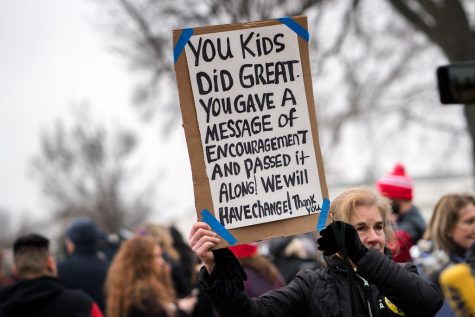
Students across the nation march to their city capitals where they protest for stricter gun laws. Hawaiʻi has one of the most strictest gun laws in the country restraining citizens from purchasing guns until the age of 21.
After the Florida shooting America stood up to say that they’ve had enough and spoke out using #ENOUGH, the hashtag of a movement begun by The Brady Campaign that brings awareness to the issue of gun violence in America.
Gun control demonstrations became more frequent, many being led by students.
March 14 marked the 1-month anniversary of the MSDHS shooting. On this day at 10 a.m., high schoolers across the country stood up and walked out of their classes for 17 minutes, a minute for each victim.
The walkout took place throughout the nation, from Maine to Hawaiʻi and here, at Kamehameha Schools Maui.
Schools interpreted and observed the meaning of the national walkout in different ways, and at KS Maui, with the Western Association of Schools and Colleges visiting accreditation team looking on, haumāna and staff did not hesitate to turn their regular 5-minute between-class passing time into a 17-minute ceremony of remembrance.
“I feel like it was very informative to see what is actually happening,” feshman Jonah Saribay said. “Some people want to turn a blind eye, but this is reality, this is happening, and change needs to happen.”
The ceremony consisted of the naming of each victim while haumāna held posters with photos and information about each one on them.
“We stand here today” said each class president in unison. Students stood together for their own reasons, whether to stand with the victims’ families and the families of victims of other shootings, to take a stand against gun violence, or to to be alongside others when times are hard.
Kahu Kalani Wong followed-up with manaʻo. “We stand as one, knowing that together we can face any challenge or difficulty one person is having,” he said.
“We stand as one knowing that together we can face any challenge or difficulty one person is having,” Kahu Wong, KS Maui chaplain.
In the spirit of aloha, juniors Lexi Pruse and Chyna Bateman and senior Karlee Chong Kee dedicated a hula “to those whose lives have been snatched from us too soon,” according to the introduction of their hula.
Mele ʻOhana by Kealiʻi Reichel played as the dancers shared the school’s love, while participating haumāna stayed standing in silence as they bowed their heads in respect. The emotional moment was peppered with soft sniffles and eyes swollen with tears.
Kahu concluded the 17-minutes by leading an all-school prayer.
“We pray for an end to gun violence in our nation, that our homes, schools, houses of worship, and neighborhoods may become places of safety for all,” he said.
The students added their generation’s voices to the tens of thousands of others who participated March 14. Jordan Kama said, that if nobody steps up, there will never be change, as this is a “social issue that [plagues] our nation.”

